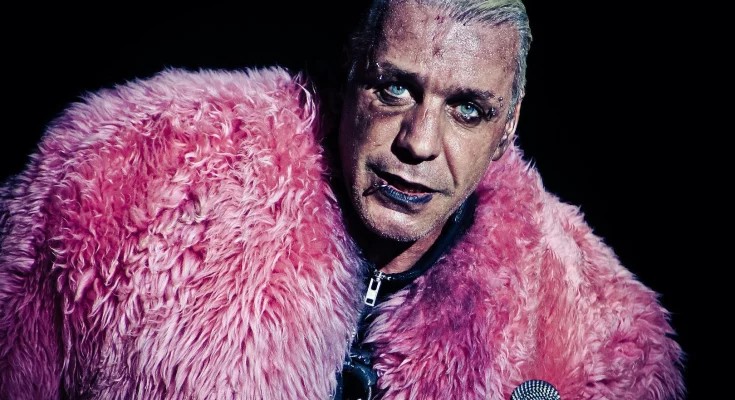The world of music documentaries has seen an explosion in recent years, with streaming platforms capitalizing on the fascination fans have for the raw, unfiltered lives of their favorite artists. Netflix has once again thrown its hat into the ring with the release of an explosive trailer for the upcoming documentary centered on one of the most enigmatic, controversial, and undeniably powerful figures in modern music: Till Lindemann, the iconic frontman of Rammstein. The announcement immediately set off shockwaves across the global fanbase of the German industrial metal band, a group that has carved out a unique cultural space with their larger-than-life performances, provocative themes, and a sound that balances violence, beauty, and theatricality. Till Lindemann himself is more than just a singer—he is a poet, an artist, a provocateur, and a symbol of artistic rebellion. The documentary promises to explore all facets of his life, both on and off stage, and the trailer alone has already ignited conversations about what revelations might come when it finally drops.
The trailer wastes no time pulling audiences into Lindemann’s world. From the first frames, viewers are confronted with archival footage of Rammstein’s explosive concerts, where fire, pyrotechnics, and sheer spectacle serve as an extension of Lindemann’s booming, guttural voice. The narrative quickly shifts from public persona to private reflections, highlighting a man who is as much a mystery to his fans as he is an open book in his art. What makes the trailer compelling is its juxtaposition of chaos and calm: scenes of Lindemann’s wild stage antics—where he appears larger than life—are contrasted with quiet moments of him writing poetry, sketching ideas in notebooks, or simply reflecting on the passage of time. This duality has always been central to his appeal, and Netflix seems determined to peel back the layers and show audiences the man behind the myth.
For decades, Till Lindemann has been a commanding force, not only because of his unmistakable voice, but also because of his fearless embrace of taboo subjects. Rammstein’s music is filled with provocative themes, often walking a thin line between satire and shock, and Lindemann has been at the center of both praise and criticism for the band’s willingness to push boundaries. The trailer hints at discussions surrounding this very tension: interviews with fellow bandmates, collaborators, critics, and cultural commentators are featured briefly, teasing debates about the nature of art, censorship, and the responsibility—or lack thereof—of artists to appease societal norms. By bringing these issues into focus, the documentary seems poised to be more than a simple biography. It could serve as a broader examination of what it means to be a controversial artist in an age of hyper-visibility.
One particularly striking element of the trailer is how much it highlights Lindemann’s evolution from a young man in East Germany to an international rock star. Born in Leipzig in 1963, Lindemann grew up in a country divided by politics and ideology. That context shaped not only his worldview but also his art. The footage included in the trailer suggests the documentary will dive deep into how his upbringing influenced his penchant for rebellion, his fascination with power structures, and his willingness to embrace uncomfortable truths. Old photographs of a younger Lindemann, intercut with his present-day interviews, promise a reflective journey into how a boy growing up behind the Iron Curtain became the face of one of the most provocative bands of all time.
Perhaps the most surprising moments of the trailer are those that humanize Lindemann in ways fans might not expect. While he is often seen as a towering, intimidating figure on stage—snarling lyrics with pyrotechnics blasting around him—the documentary teases glimpses of his vulnerabilities. There are moments where Lindemann speaks softly about family, legacy, and the cost of fame. One clip shows him wrestling with the idea of mortality, admitting that despite his commanding presence on stage, he is still a man who struggles with the same insecurities and fears as anyone else. This honesty could be one of the documentary’s most powerful elements, showing audiences that even legends are not immune to the frailty of human existence.
Netflix clearly understands the global appeal of this project. Rammstein is not just a German band; they are an international phenomenon. Their shows sell out stadiums worldwide, and their music transcends language barriers. Even those who do not speak German are captivated by the sheer emotion and intensity Lindemann brings to every performance. By choosing to highlight Lindemann, Netflix is tapping into a worldwide fanbase eager for insight into a man who has remained somewhat elusive despite decades in the spotlight. The fact that the trailer is already sparking discussions across social media platforms underscores just how anticipated this release is. Fans are dissecting every frame, looking for clues about what stories will be told, which controversies will be addressed, and how much of Lindemann’s private world will be revealed.
The documentary also arrives at a particularly interesting time in Rammstein’s career. The band continues to tour and record, showing no signs of slowing down despite being decades into their journey. Yet, as with many iconic acts, there is always speculation about how much longer they can continue at their current pace. For Lindemann personally, the documentary could serve as both a retrospective and a statement of intent. Will it portray him as a man looking back on a career of fire and fury, or as an artist still hungry to push boundaries? The trailer offers no clear answers, but it suggests that both possibilities might be explored.
A recurring theme in the preview is Lindemann’s relationship with art beyond music. Known not only as a vocalist but also as a poet and visual artist, he has often blurred the lines between different forms of expression. The trailer shows him reciting lines of poetry, working on visual projects, and discussing the role of creativity in his life. This emphasis suggests the documentary will not be confined to the world of Rammstein but will instead showcase Lindemann as a multidisciplinary artist. For fans who know him primarily as the voice of Rammstein, this could be an eye-opening revelation into the broader scope of his artistry.
What makes this documentary especially compelling is the promise of unfiltered storytelling. The trailer gives the impression that Lindemann is not holding back, and Netflix is allowing him to present himself in all his complexity. That means audiences can expect moments of discomfort alongside moments of inspiration. It is unlikely to be a sanitized or sugar-coated portrayal, which is fitting for an artist who has always thrived in the gray areas of truth and performance.
The cultural significance of this documentary cannot be overstated. In many ways, it is more than just the story of one man; it is the story of a generation of artists who challenged conventions and refused to be tamed. Lindemann’s journey reflects broader questions about freedom of expression, the role of art in society, and the price of living authentically. By chronicling his life, Netflix is also capturing a piece of music history that speaks to the enduring power of individuality in a world that often seeks conformity.
The release of the trailer has already set expectations high, but it has also raised questions. How deeply will the documentary explore the controversies that have surrounded Lindemann over the years? Will it tackle the criticisms that Rammstein has faced for their provocative imagery and themes, or will it focus more on celebrating his achievements? Will viewers be given access to personal moments with the band, or will the lens remain firmly on Lindemann himself? The ambiguity only adds to the intrigue, ensuring that when the documentary finally lands, it will do so with massive anticipation.
Fans are already flooding forums and social media with speculation, excitement, and even debate. Some are eager to see their idol portrayed in a new light, while others wonder if the documentary will change how he is perceived. What is certain, however, is that the release will not go unnoticed. Lindemann has never been an artist who exists quietly, and this project will only amplify the fascination that surrounds him.
As Netflix prepares to unleash this documentary, one thing is clear: it will not be just another addition to the growing catalog of music biographies. With Till Lindemann at its center, the film promises to be as intense, provocative, and unforgettable as the man himself. The explosive trailer is only a taste of what is to come, but it has already succeeded in reminding the world why Lindemann is such a singular figure in music. His voice—both literal and artistic—has always been impossible to ignore, and now, with the eyes of the world upon him once again, that voice is set to be unleashed in a way we have never seen before.
In the end, the documentary represents more than just a look back at a career. It represents an invitation to step inside the world of a man who has lived unapologetically, loved fiercely, and created art that challenges, unsettles, and inspires. For longtime fans, it will be a celebration of everything they already admire. For newcomers, it may serve as an introduction to a figure whose impact on music and culture cannot be overstated. Either way, the release promises to be an event that reaffirms the enduring power of music documentaries to not just tell a story, but to capture the essence of a cultural icon.



